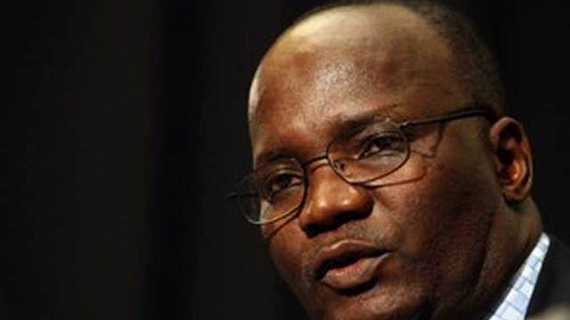
ON September 10, President Robert Mugabe announced the new Cabinet, with the notable appointment being that of Professor Jonathan Moyo — as the new Media, Information and Broadcasting Services minister — much to the disappointment of many journalists.
The cause of apprehension was obvious considering how the Zanu PF spin doctor destroyed the media industry during his previous tenure as Media, Information and Publicity minister.
Moyo is well known for his introduction of “draconian” media laws such as the Access to Information and Protection of Privacy Act and the infamous Broadcasting Services Act.
Once again, the political science guru is back albeit after his suspension from Zanu PF and his embarrassing first-ever parliamentary elections loss to MDC T’s Roselyn Nkomo, which many thought would mark an end to his political career.
There is a general feeling from different individuals in the media industry that Moyo’s return might see the renewal of hostilities between journalists and the Zanu PF government — a scenario that was very common during the period between early 2000 to 2004.
Polarisation only abetted in 2005 when Moyo was fired from Zanu PF.
During the tenure of the inclusive government, the tactful and often controversial Professor was enjoying space in the public owned media — particularly The Sunday Mail — criticising virtually every stance taken by the MDC.
Moyo, who is very much known for his hate for criticism of the government by journalists, specifically to pursue his own agenda, has been once again appointed as the front man to “control words” from Zambezi to Limpopo and this time being deputised by the young media mogul, Supa Mandiwanzira.
- Chamisa under fire over US$120K donation
- Mavhunga puts DeMbare into Chibuku quarterfinals
- Pension funds bet on Cabora Bassa oilfields
- Councils defy govt fire tender directive
Keep Reading
As the Cabinet begins its daunting task of transforming Zimbabwe, presumably to its glorious days, Moyo once again resurrects from the political wilderness, leading a ministry, which defines a country.
Scribes hope that Moyo will not be engaged in an attack of the fourth estate that acts as the eyes, nose and ears of the public.
In an interview with journalists just after his latest appointment, Moyo said he was not at war with any of the journalists and media houses, but wanted to improve from where his predecessor Webster Shamu had left.
Moyo added that he intended to heal the rift between himself and the media, saying he wanted to open up the media industry to other players, which in my opinion will be a shock to many in the media fraternity since he is known for his “no-nonsense” approach to journalists whom at one point he described as nothing, but high school dropouts.
Hon Crissy, an MDC-T activist, on his Facebook account referred to Moyo’s statements as not true, saying it would be easier for the devil to repent to God than for Moyo to reform.
As Christians would say: “Judge not lest you be judged”, I intend not to predict anything on Moyo’s next assignment, but rather, the ball is in the professor’s court to prove he is above partisan lines and political interests.
He can still prove that he is a true academic who believes in the values of professionalism and continuity by letting the media do its duties without the government enforcing its draconian and 15th Century medieval laws to curtail the free flow of information.
Zimbabwe is currently in a position in which only progressive and democratic loving leaders can move the country forward, with the right to access to information taking centre stage.
Journalists must be given the right and freedom to expose all the corrupt and illegal activities that may draw the country backwards.
This means Moyo must have a liberal approach to avoid a scenario where journalists become scapegoats for politicians with selfish interests, but when exposed end up filing unreasonable law suits and harassing the defenceless journalists.
Educated and a policy maker that he is, Moyo must live up to his word by ensuring that more players, especially in the broadcasting sector, are given space to allow diversity, plurality and free flow of information as envisaged in the Windhoek Declaration of 1992.
As a Greek scholar once wrote: “You can tame a snake, but not its poison”, it remains to be seen whether Moyo will heal the wounds he caused to the media, which led to him having the tag “media hangman”.
Considering the generational changes that have been seen in Zimbabwe since Moyo left the job eight years ago, the new generation expects a vibrant and free media, which means he has a tricky five years to prove whether he is the right man for the job or not.
Let the job begin Prof!
Mlondolozi Ndlovu is a journalism student










